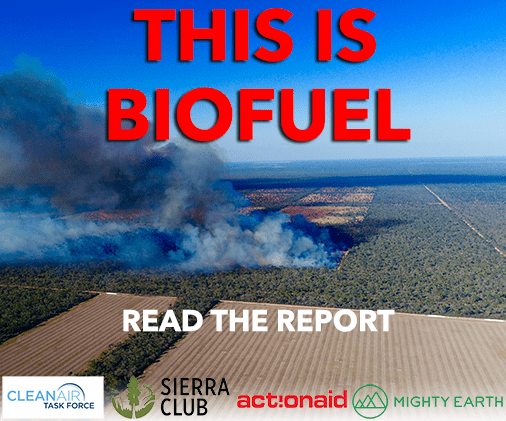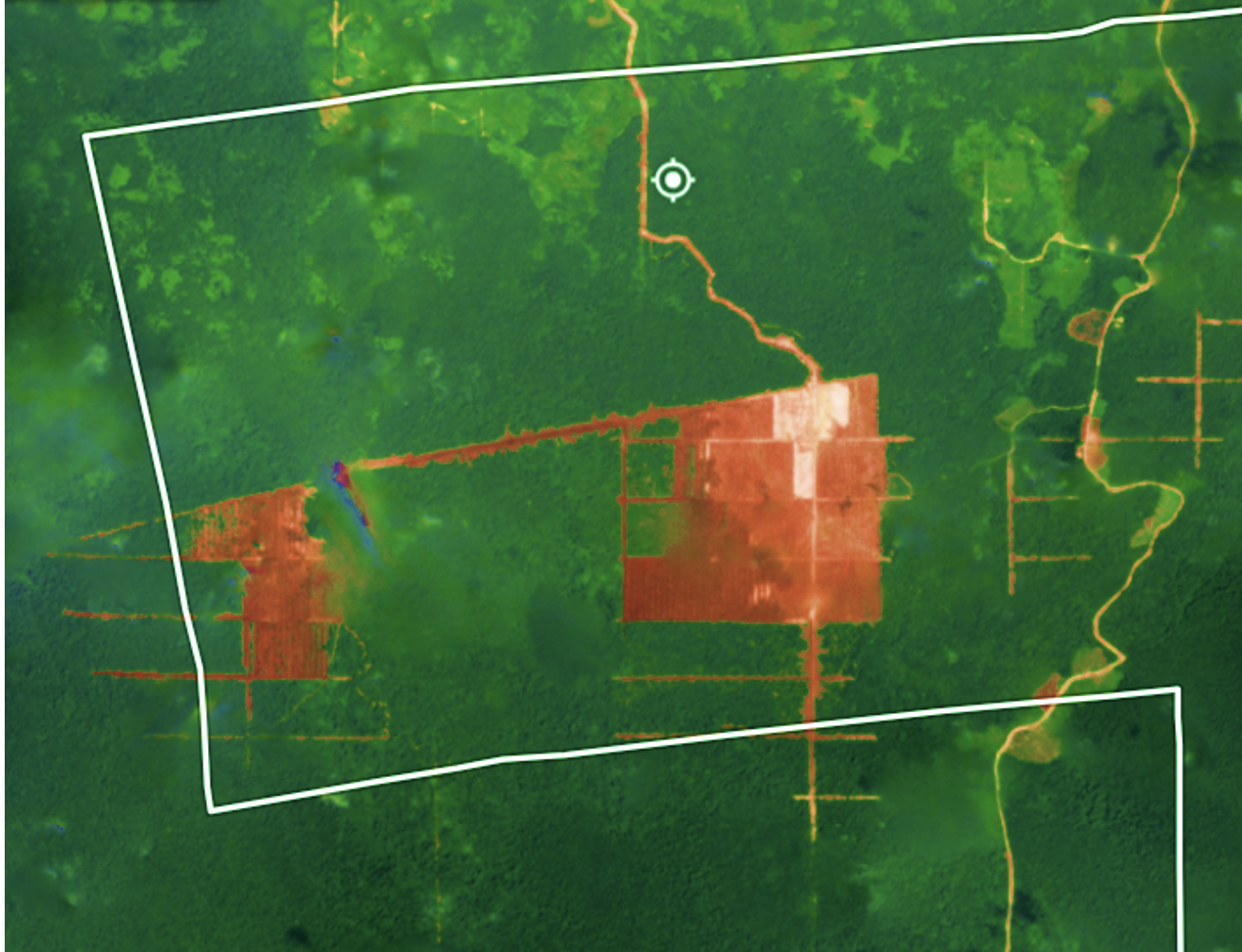
“This is Biofuel” Advertising Campaign Highlights Damaging Environmental Impacts of U.S. Biofuel Mandates
Environmental and Development Groups Point to Massive Deforestation, Public Health Impacts of Food-Based Biofuels
Today, Mighty Earth, ActionAid USA, Clean Air Task Force and Sierra Club announced the launch of an advertising campaign publicizing the environmental destruction caused by U.S. policies that mandate biofuel production.
The ads, which will run across print and digital outlets for multiple weeks, showcase a new report linking policies that mandate the production of food-based biofuels to wildlife habitat destruction and increased climate pollution. The campaign aims to educate the public about the mounting evidence that food-based biofuels are worse for the environment and climate than oil and gas.
“Corn ethanol, soy biodiesel and other food-based biofuels aren’t feel-good, hippie fuels,” said Rose Garr, Policy Director at Mighty Earth. “The Renewable Fuel Standard was intended to clean up our transportation sector, but instead it’s subsidizing fuels that are even dirtier than oil.”
“Biofuel mandates have caused large swaths of grasslands, forests, and other natural landscapes to be converted into farmland, releasing tremendous amounts of carbon into the atmosphere,” said Jonathan Lewis, Senior Counsel at Clean Air Task Force. “The Renewable Fuel Standard was intended to lower emissions from cars and trucks, but instead the policy is exacerbating global warming.”
“The U.S. biofuel mandate is driving large-scale, industrial agriculture – polluting the earth and hurting local people who are just trying to feed their families,” said Kelly Stone, Senior Policy Analyst at ActionAid USA. “People’s land rights, food security, and right to a healthy environment should not be sacrificed in the name of a broken policy.”
“Despite its name, biofuels have harmed our communities, our air and water, and exacerbated climate change,” said Andrew Linhardt, Sierra Club’s Clean Transportation for All Deputy Advocacy Director. “Rather than doubling down on biofuels, we must be investing in truly clean sources of energy to power our transportation needs.”
Mighty Earth and ActionAid USA’s new report, “Burned: Deception, Deforestation, and America’s Biodiesel Policy,” documented bulldozing, burning and the recent clearance of 30,000 acres of forest to plant new soy fields in Argentina’s Gran Chaco ecosystem, which supply some of the same companies producing soy biodiesel for export to the United States. The report also found that only 13% of biodiesel produced in 2016 came from waste and recycled oils. The large majority of biodiesel is produced using virgin oils, which are closely linked to deforestation and land conversion in the United States, Argentina and southeast Asia.
The U.S. Renewable Fuel Standard (RFS) mandates increased biofuel consumption through 2022. In the United States, the increased crop production to meet this biofuel mandate contributed to the Gulf of Mexico’s dead zone, toxic algal blooms that have poisoning drinking water in Lake Erie and other waterways and nitrate pollution across the Midwest. And, although truly advanced, sustainable biofuel production still holds promise, these better biofuels constitute only a tiny fraction of overall biofuel production.
The digital campaign can be seen on Axios, POLITICO, and Twitter. For more on the report and what can be done visit www.mightyearth.org/burned


